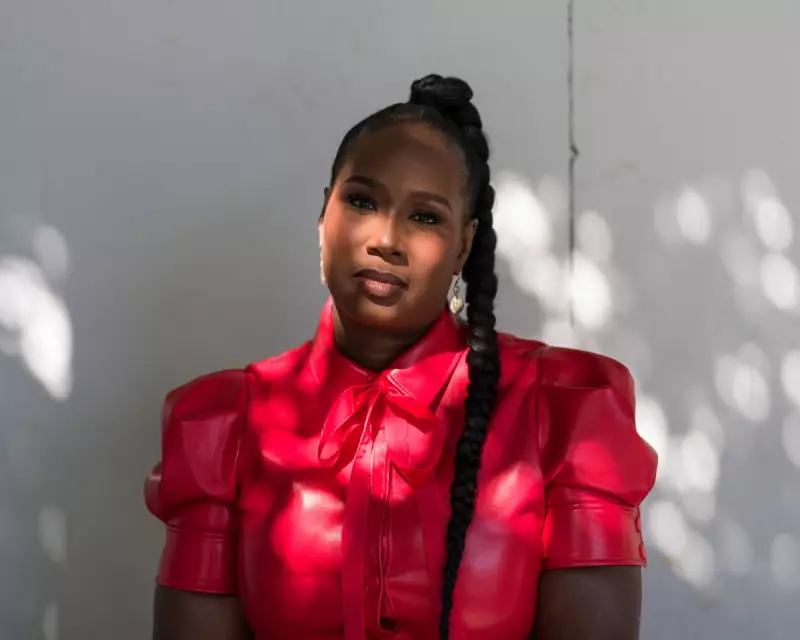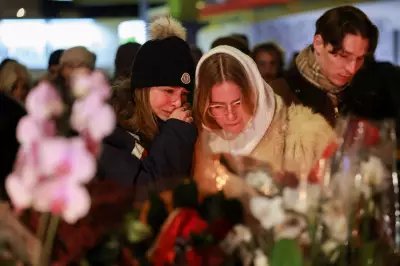
From Victim to Advocate: A Survivor's Journey
Katrina Brownlee's life changed forever on a freezing January morning in 1993. The 22-year-old, five months pregnant, had returned to her former fiancé's Long Island home to collect her belongings, believing their relationship was finally over. Instead, she walked into a nightmare that would leave her fighting for her life and ultimately transform her into a powerful advocate for domestic violence victims.
The Attack That Changed Everything
Brownlee had experienced premonitions from a young age, and one month before the attack, she dreamed her law enforcement officer ex-partner would try to kill her. Despite hearing an inner voice warning her not to return to the house they'd shared, she went back with her two-year-old daughter through the snow, needing to retrieve her few possessions.
Once inside, she discovered empty drawers and realised she had been lured there under false pretences. Her ex emerged from the living room with a gun aimed squarely at her pregnant stomach. He fired three times initially, and Brownlee remembers seeing her pregnancy bump "go flat".
Over the next hour and a half, he shot her ten times in total - three times in the stomach, once in the arm, once in the buttock, once in the hip and four times in the vagina. He also beat her over the head with a wooden board while shouting: "You don't want to be with me? I gave you everything you wanted, and it still wasn't enough!"
Miraculously, her daughter remained quiet in the next room, and Brownlee believes he simply forgot about the child. After playing dead, she eventually lost consciousness. Her ex dragged her body into the bath, where she would have died had his cousin not arrived unexpectedly, concerned by his "manic" tone during an earlier phone call.
A History of Abuse and Systemic Failure
Brownlee had met the man who tried to kill her when she was 18. He was six years older, with a nice car and career as a prison officer. Coming from a chaotic childhood where she was raised by her grandmother after her teenage mother abandoned her in hospital, Brownlee was impressed by him.
The violence began months into their relationship when she discovered she was pregnant and wanted an abortion. He beat her and tore up her referral letter for the procedure. Her grandmother witnessed the abuse but encouraged her to stay, believing he could provide a better life.
During their relationship, Brownlee called police to report the violence three times, but officers always left after her fiancé showed his badge - even when she had visible injuries. This repeated failure by those meant to protect her left her feeling trapped with nowhere safe to go.
Recovery and Radical Transformation
After nine days in a coma, Brownlee woke to devastating news: her unborn baby had not survived, she would never have more children, and doctors said she would never walk again. Yet she made astonishing progress - by the end of summer 1993, she was walking unassisted.
Her ex pleaded guilty and received just five to 15 years, despite the prosecutor requesting 25 years to life. His lawyer successfully argued it was a crime of passion committed by a prison officer with no previous record. Six bullets remain in Brownlee's body to this day, too risky to remove.
At 27, searching for purpose, Brownlee enrolled in the NYPD traffic academy, eventually becoming a police officer in 2001. She wanted to be a "good cop" who could bridge the gap between police and community. She excelled in undercover roles in narcotics and vice, often encountering sex workers with backgrounds similar to her own.
Advocacy and Lasting Impact
Now 55 and retired after 20 years of service, Brownlee focuses on advocacy, coaching and mentoring. She campaigns for legislation that would ban those convicted of domestic violence in New York from accessing firearms, arguing this could cut domestic homicides by half.
She also advocates for a domestic violence registry, allowing people to check if new partners have related convictions, and mandatory rehabilitation for abusers. Starting later this year, she'll speak to men in federal prisons who have committed domestic abuse and other violent crimes.
Brownlee has worked hard to forgive her attacker, believing "the power of forgiveness... is for you, it's for the people around you". Though they've been in the same room once since his release after ten years, they didn't speak.
Her memoir, published this year, has brought her closer to family members who hadn't understood what she endured. While her daughters, now 35 and 40, haven't read it yet to avoid triggers, Brownlee remains focused on creating change for other survivors.





